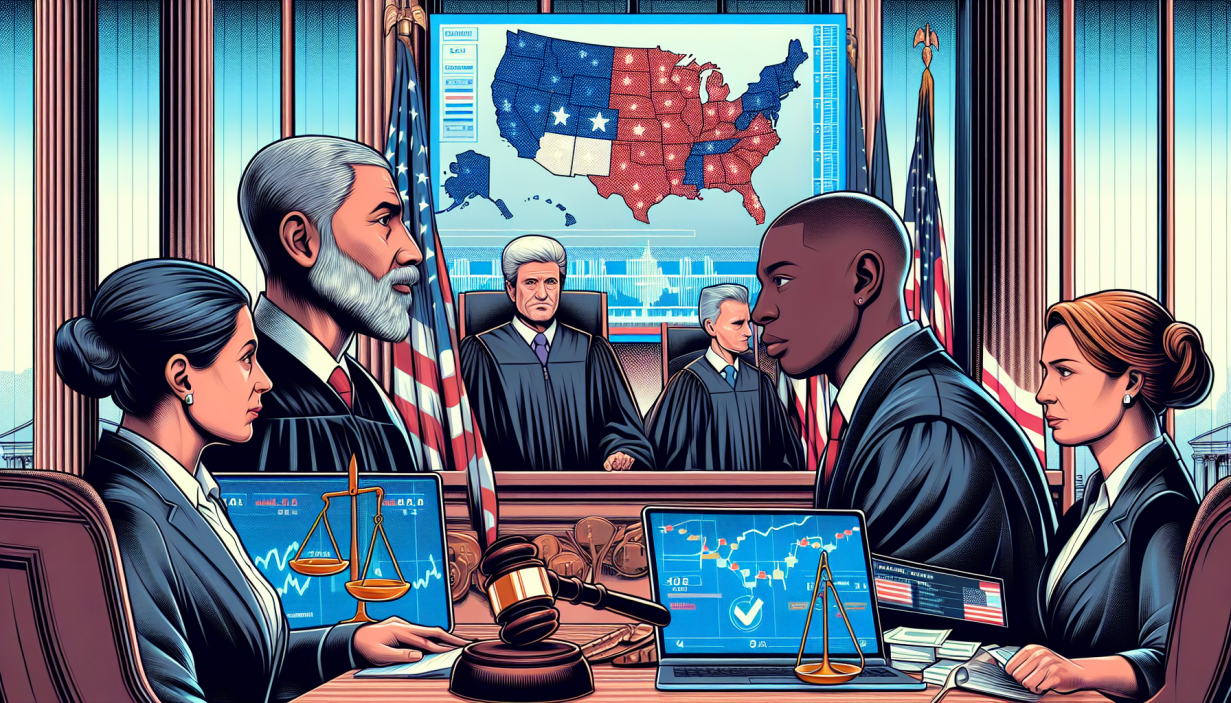US CFTC Is Unhappy with Court's Kalashi Decision
CFTC's market manipulation concerns have been addressed
September 20, 2024 09:06 AM
Reading time: 2 minutes, 35 seconds
TL;DR Kalshi is defending its right to offer election betting contracts, and the CFTC is challenging a court decision in favor of Kalshi. The debate raises questions about market integrity and regulatory authority.

The U.S. Commodity Futures Trading Commission (CFTC) is challenging a recent court decision that would allow Kalshi, the prediction market platform, to offer contracts related to U.S. election outcomes.
The ongoing legal battle has raised concerns about the integrity of election betting and the extent of the CFTC's regulatory authority.
Courtroom Clash
CFTC General Counsel Rob Schwartz and Kalshi's counsel Yaakov Roth presented their arguments at a hearing before the U.S. Court of Appeals for the District of Columbia Circuit.
The hearing followed a district court decision that said the CFTC could not stop Kalshi from offering contracts based on which party would control both houses of Congress. Soon after the decision, the CFTC applied for a temporary stay, which the appeals court granted.
Judges' Skepticism
Three judges, Patricia Millett, Cornelia Pillard, and Florence Pan, scrutinized both sides' arguments. They questioned the CFTC's view on the Commodity Exchange Act and the consequences of allowing bets on electoral outcomes. The judges appeared skeptical of the reasoning provided by both parties.
C FTC's Concerns
The U.S. Commodity Futures Trading Commission's concerns included threats to market integrity and the potential for manipulation in election-related prediction markets.
Schwartz pointed out that political prediction markets are more susceptible to false information and manipulation than other event markets.
He stated, "Permitting these contracts could lead to misperceptions among the public and erode the already weak confidence in U.S. elections."
Schwartz also noted that while traditional futures contracts are based on factual and accurate information, political markets could be skewed by fake polls, fake news, and other agenda-driven media.
He argued that the CFTC cannot adequately monitor these underlying events, making promoting fairness and transparency in the markets challenging.
Kalshi's Defense
Kalshi's attorney, Yaakov Roth, countered the concerns surrounding Kalshi's compliance measures. He noted that regulated prediction markets are more transparent and provide more oversight than less regulated foreign platforms.
Both argue that markets supported by a robust legal regime are less likely to be manipulated than unregulated foreign markets.
He maintained that permitting these regulated prediction markets would offer better protection to participants and minimize the chances of distortion by foreign elements.
According to Roth, the firm has incorporated 'Know Your Customer' measures to ensure only approved market players transact. He recommended that a locally regulated market be established to overcome dependence on less transparent overseas markets.
Hence, in the upcoming 2024 U.S. elections, the appeals court is expected to make a ruling as soon as possible. The CFTC has been working on a regulation likely to prohibit trading on political events, as the commission says such contracts are detrimental to the public interest.
Future Implications
Legal experts argue that the courts or the legislature may need to step in and offer guidance on the future of election-related prediction markets.
FTC Chairperson Rostin Behnam has also expressed concerns over the financial regulator's involvement in election contracts, saying such actions may be outside the agency's scope.
The debate continues, with both sides awaiting a crucial decision that will shape the future of political prediction markets in the U.S.



